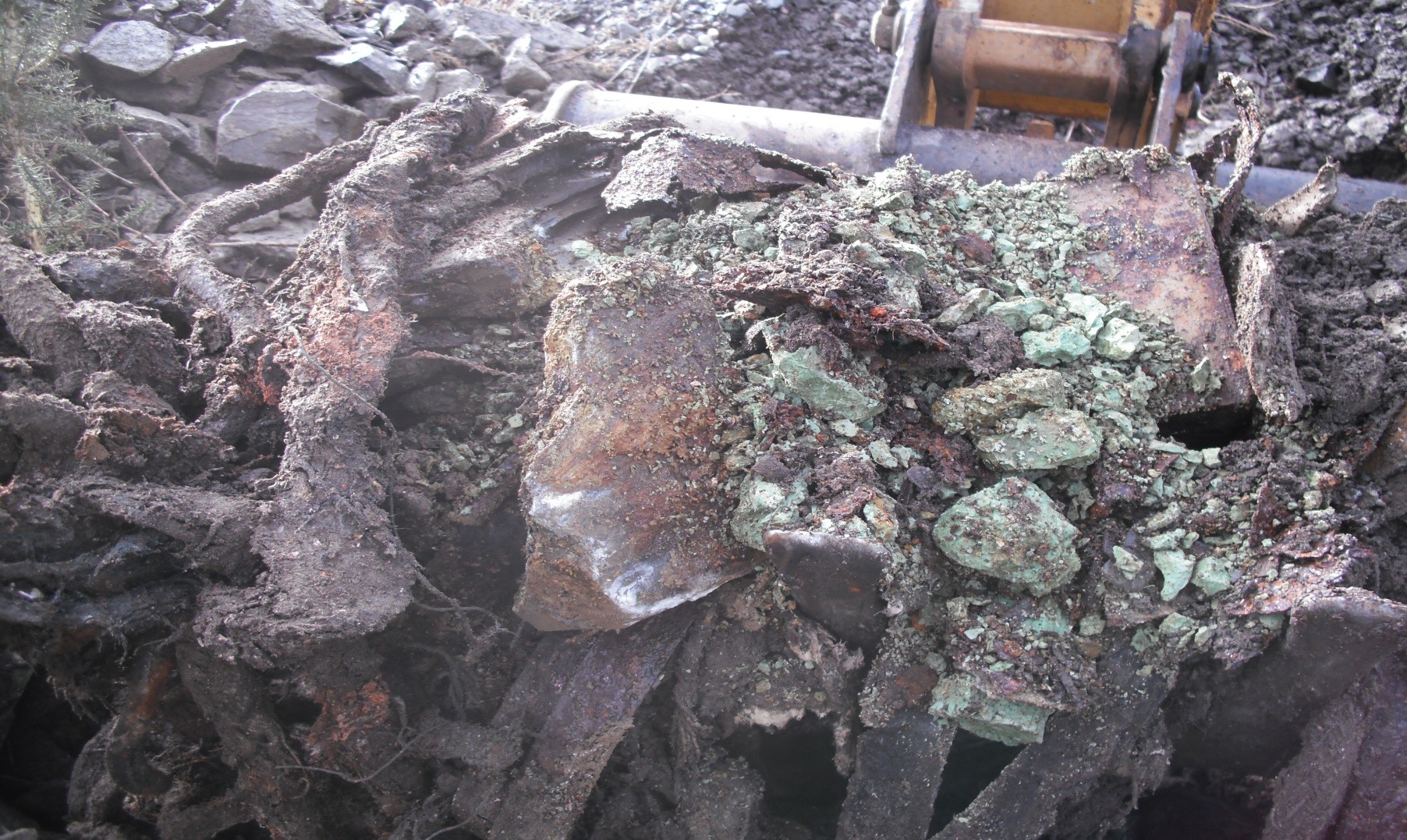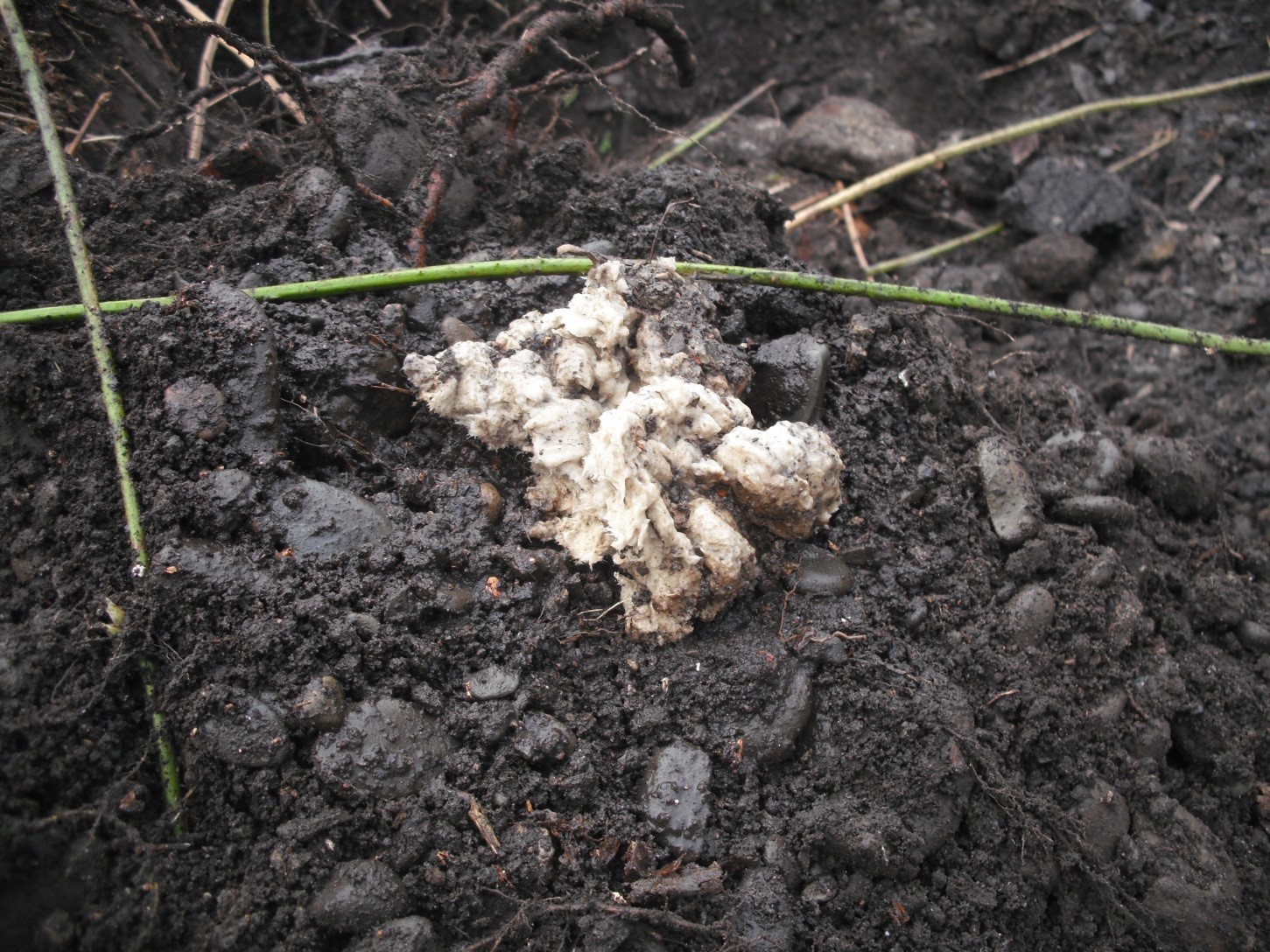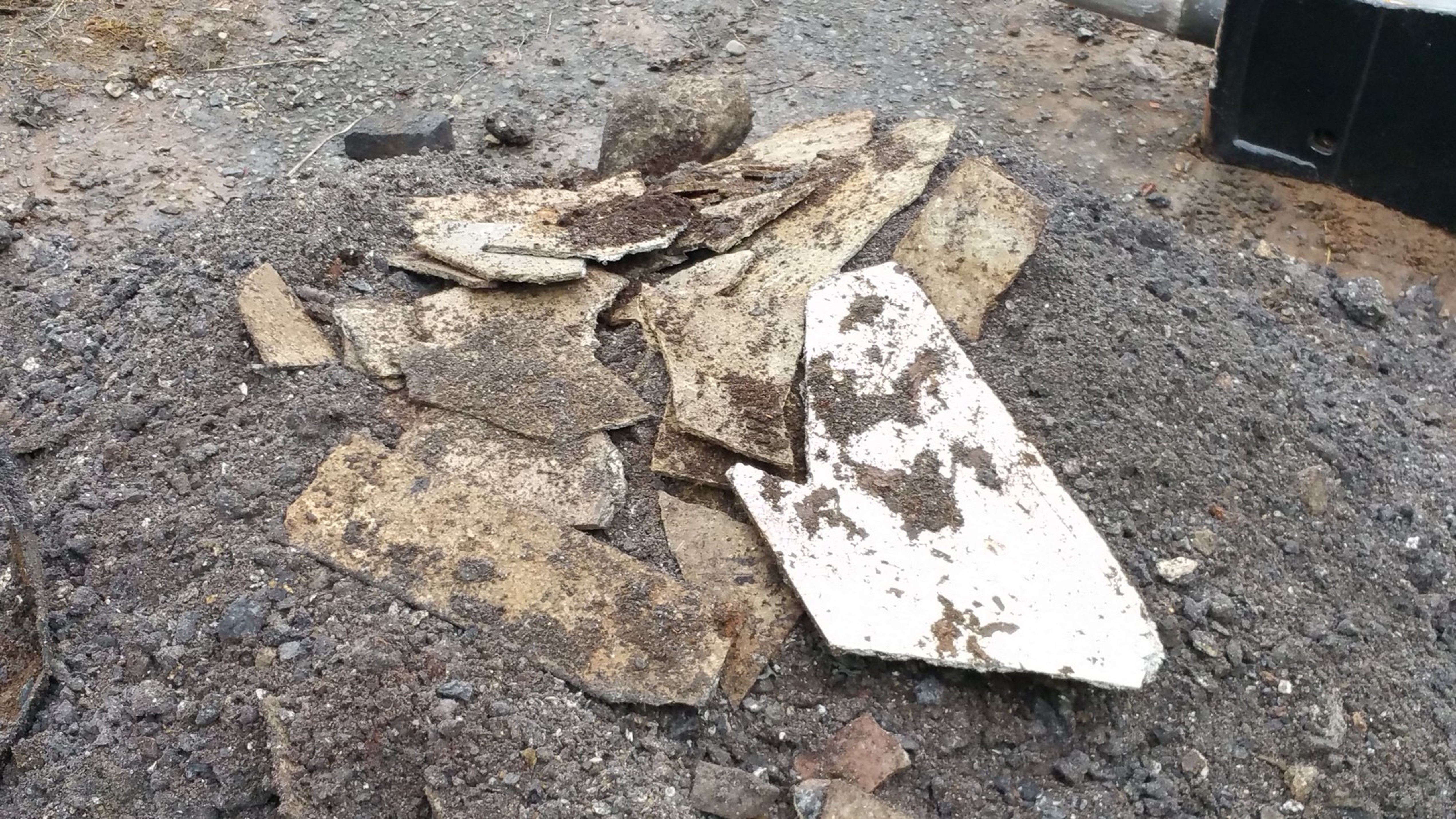Sub Menu
The importance of asbestos awareness and training for the plant and construction industry
Prof. Roger Willey from the UK Asbestos Training Association shares his expertise on asbestos, as the SPOA sets its sights on 2025 and the anticipated start of our sector specific upskilling programmes.
What are the risks of asbestos?
Asbestos, once widely used in construction until its ban in 1999, remains a hidden hazard in many older buildings and sites across the UK. For those involved in operating or hiring plant and machinery in construction, demolition and groundwork, the risks go beyond buildings - contaminated soils pose an additional challenge.
In environments where asbestos is present in soils, plant machinery used for excavation, soil handling or construction work, can become contaminated with asbestos fibres. This poses significant risks not only to operators and maintenance personnel but also to anyone using or repairing the machinery in the future.

Buried asbestos textile and raw insulation (blue)
Asbestos-containing materials (ACMs) degrade over time or may have been buried during construction, making asbestos-contaminated soil a common issue in redevelopment or excavation projects. Disturbing these materials releases harmful fibres into the air, which can lead to serious diseases such as asbestosis, lung cancer and mesothelioma.
To protect workers, clients and the public, it is vital for businesses to understand asbestos risks, comply with legal training requirements, and address the specific challenges of asbestos in soils.
Understanding asbestos risks in soils and construction
What is asbestos in soil?
Asbestos in soil often arises from the demolition of buildings where ACMs were improperly managed, historical disposal of waste materials, or contamination during construction activities. Common examples include fragments of asbestos cement, insulation materials and loose fibres. These are more likely to release fibres during excavation or disturbance, increasing health risks.

Buried asbestos rope
Key scenarios where asbestos in soils may occur:
- Demolition and redevelopment sites: Debris left from old buildings.
- Excavation works: Contaminated backfill or buried materials.
- Brownfield sites: Industrial areas with a history of waste disposal or construction.
Training and legal requirements for asbestos management
The Control of Asbestos Regulations 2012 outlines the legal obligations for managing asbestos, including in soils. Employers must ensure their workforce has the appropriate soils training for the tasks they undertake at the correct level:
Asbestos Awareness Level: This is essential for workers who may encounter ACMs during groundwork or site clearance. It provides knowledge on recognising ACMs, including contaminated soils, and instructs workers to stop work and seek expert advice if asbestos is suspected.
Non-licensed Asbestos Work Level: This training is required for tasks where asbestos is knowingly disturbed, such as handling small amounts of contaminated soil. It covers safe removal techniques, control measures and decontamination procedures.
Licensed Asbestos Work Level: This is mandatory for high-risk tasks, such as extensive removal of contaminated soils with significant fibre release. Licensed contractors are trained in using specialist equipment and implementing containment methods.
Important considerations: Workers handling asbestos in soils must follow strict risk assessments and control measures. Depending on the level of risk, non-licensed and licensed work may require notification, medical surveillance and air monitoring.

Fly-tipped asbestos cement and asbestos insulating board
Conclusion
For businesses in construction, demolition and plant hire, asbestos risks extend beyond buildings to the ground beneath. Proper training is critical for managing these risks and ensuring compliance with the Control of Asbestos Regulations 2012.
UKATA-certified training equips workers with the knowledge to manage asbestos safely, whether in buildings or contaminated soils. Staying informed and proactive is essential for a safer working environment.
To find a UKATA-approved training provider, visit www.ukata.org.uk or call 01246 824437.
About UKATA:
UKATA is a leading authority on asbestos training provision, setting the highest standards in asbestos awareness and management training across the UK and internationally. Representing a network of approved training providers, UKATA ensures that all training meets rigorous quality standards to protect individuals and businesses from the risks associated with asbestos exposure.
With a mission to educate and raise awareness, UKATA works closely with industry stakeholders, regulatory bodies and government organisations to promote excellence in asbestos management. UKATA-certified training is recognised as one of the highest standards and quality mark in asbestos training, equipping workers and employers with the knowledge and skills required to work safely and comply with legal obligations.
Through its commitment to maintaining exceptional standards and supporting professional development, UKATA plays a pivotal role in shaping a safer future for those working in asbestos-related industries.